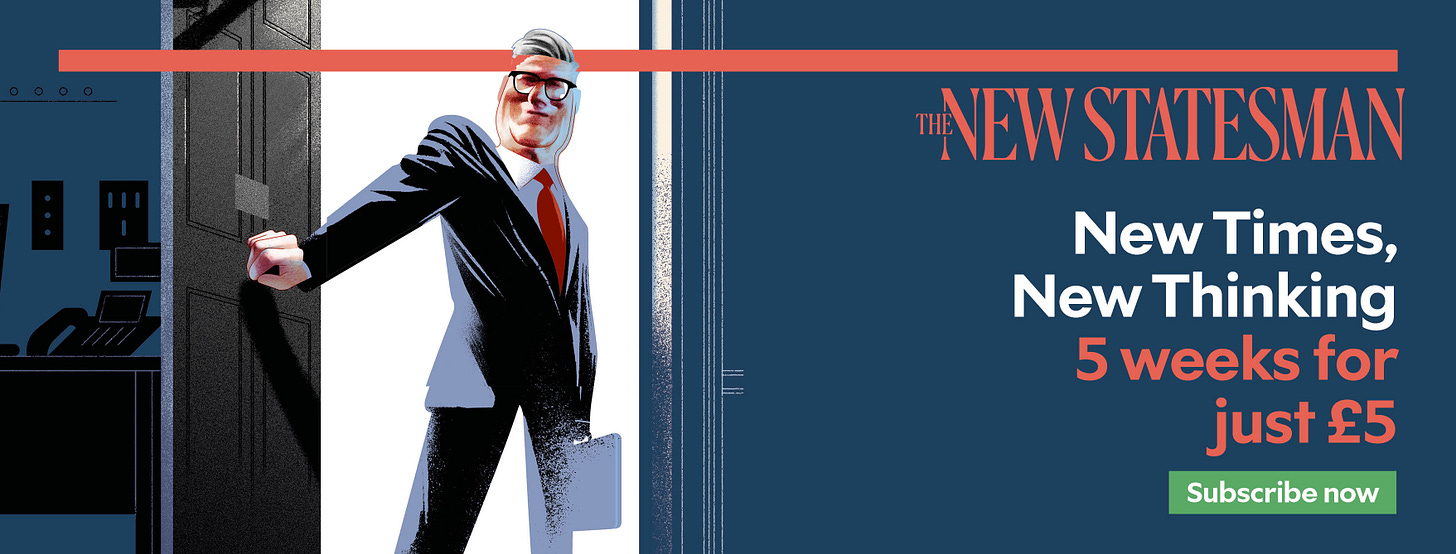Morning Call: How Labour became trapped on tax
Rachel Reeves has been left over-reliant on raising money from the wealthiest.
Good morning, it’s George here.
The intensifying Middle East conflict is raising more uncomfortable economic questions for the government. Below I explore Rachel Reeves’ growing tax headache.
Back in November, Rachel Reeves was clear. Mindful of business criticism regarding her Budget, she told the CBI conference that “public services now need to live within their means” and that “I’m not coming back with more borrowing or more taxes”.
Even at the time that looked to many in Labour like a hostage to fortune. Donald Trump had been elected president just three weeks earlier, demanding higher defence spending and threatening tariffs.
The Chancellor now inhabits a changed world and so her line has changed. “Taxes won’t need to go up to pay for what is in this Spending Review,” Reeves said last week in an interview with GB News (a channel Downing Street is paying increasing attention towards). It was a carefully caveated answer: Reeves does not expect to raise taxes to pay for fixed departmental budgets but she faces other fiscal headaches: the U-turn over winter fuel payments (£1.25bn) and the likely abolition of the two-child benefit cap (£3.5bn).
This is not all: the Office for Budget Responsibility is expected next month to revise down its optimistic productivity forecasts (something that could cost Reeves £20bn) and the Chancellor is considering reversing her imposition of inheritance tax on non-doms. “The optics are awful,” remarked one Labour MP of the coincidence with the biggest welfare cuts since George Osborne.
The non-dom change, which sees individuals charged 40 per cent on their global assets (even if these are placed in trust), is being blamed for an exodus of the wealthy. There are also fears that the extension of VAT to private school fees could raise less than hoped (13,000 pupils have so far left the sector compared to an official estimate of 3,000).
Here is Reeves’ challenge: chancellors traditionally favour “broad-based” tax rises. In other words, those that are paid by most taxpayers and generate reliable revenue (such as income tax, National Insurance and VAT). But by pre-emptively ruling out such measures, Reeves has been left reliant on raising money from the wealthy and business.
Labour’s tax lock is regarded by some as the government’s “original sin” – will it ever be broken? No 10 and No 11 are united in insisting not. First, they emphasise, it is an explicit manifesto pledge (Labour, by contrast, simply avoided any mention of winter fuel payments). Second, for voters, tax is a cost-of-living issue. Ministers already fear the impact of an annual 5 per cent rise in council tax (which will take the average band D bill from £2,280 this year to around £2,640 by 2028-29).
Here is how Reeves became trapped on tax. Raising more from ordinary voters is viewed as politically untenable. Raising more from business and the wealthy is becoming economically unsustainable. The Chancellor’s task for the summer is to find an escape route.
George’s picks
Joshua Leifer on the history that shapes Benjamin Netanyahu.
Nicholas profiles Dominic Cummings: “oracle of the new British berserk”.
Will asks what the Israel-Iran conflict means for oil inflation.
Finn on what she saw at the Kneecap trial.
And something different: Tina Brown on how Princess Diana softened the hard edges of the Thatcher era.
Mailshot
BBC: Trump approves Iran attack plan, final decision pending
Politico: Netanyahu vows revenge after Iran strikes Israeli hospital
Guardian: UK air pollution killing 500 a week according to doctors
Juliet Samuel: Grooming gangs show the folly of “openness”
Tariq Ali: Nuclear options
Martin Kettle: Doubt regime change
Tom Crewe: Against Ocean Vuong
British zoo’s missing mongoose turns up at pub 15 miles away
And with that…
Let me know what you think about today’s Morning Call by hitting reply. My thanks to Zoë Huxford and George Monaghan. Have a good day, Will will be with you tomorrow.
George — @georgeeaton








Fine work. Always interesting and informative but in bite size chucks that are manageable in an email. Look forward to reading these emails. Much appreciated.
It's headlines like the one about the mongoose that cheer me up, when the main news of the day is as worrying as of late!